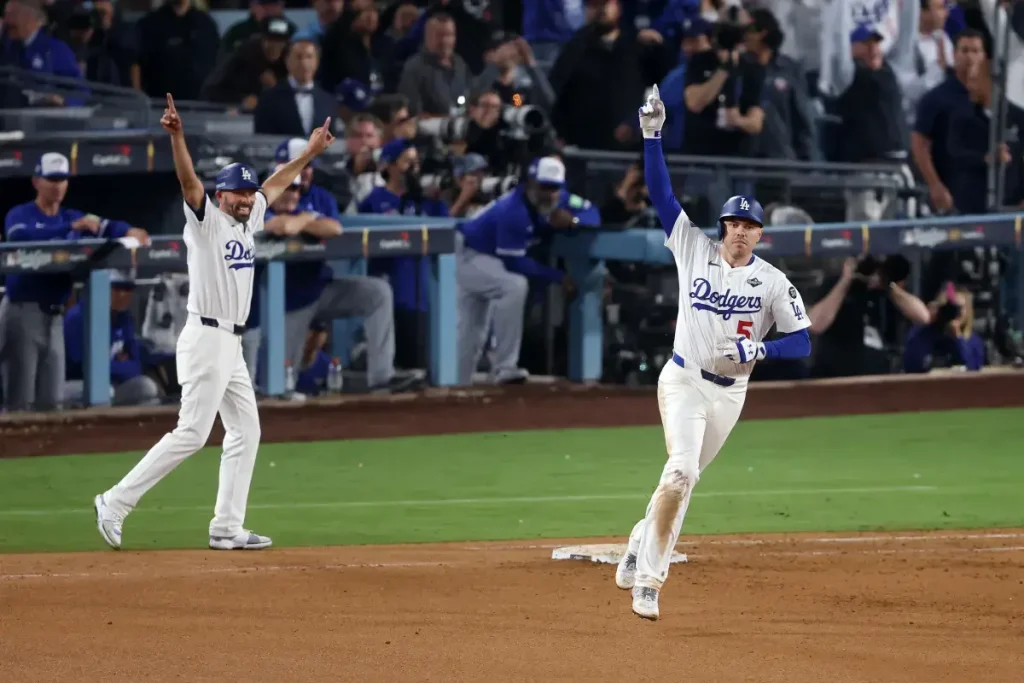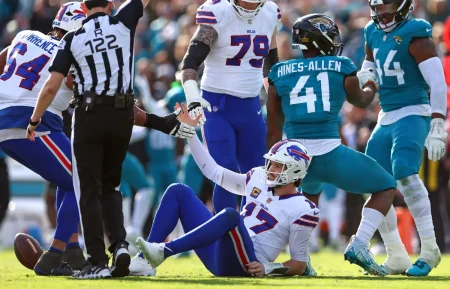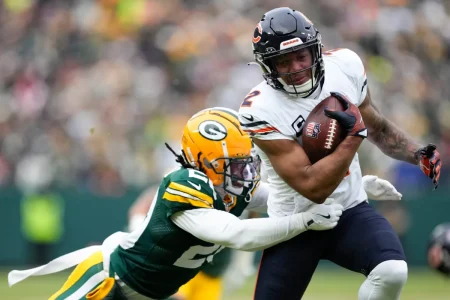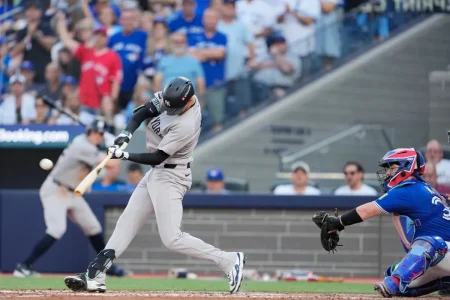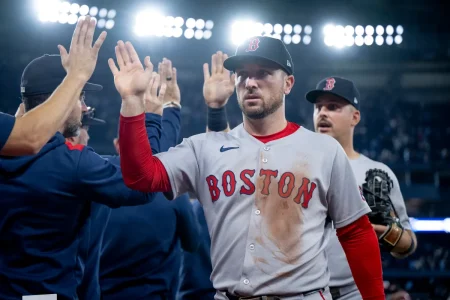Dodgers Claim Epic World Series Game 3 in 18-Inning Marathon
In a World Series Game 3 that will be remembered for generations, the Los Angeles Dodgers outlasted the Toronto Blue Jays in an extraordinary 18-inning battle that stretched nearly seven hours. The contest finally concluded when Freddie Freeman launched a walk-off home run into the night sky, giving the Dodgers a 2-1 series lead in this Fall Classic. The game showcased baseball at its most dramatic—filled with momentum shifts, heroic performances, and the kind of tension that makes October baseball magical. For fans who stayed until the early morning hours, it delivered the kind of memories that become permanently etched in baseball lore.
The early innings hinted at the drama to come, with the Dodgers building what initially seemed like a comfortable lead. Teoscar Hernández opened the scoring with a solo home run into the left-field bullpen in the second inning, his fifth of the postseason. Shohei Ohtani, continuing his remarkable debut postseason with the Dodgers, extended the lead to 2-0 with a home run of his own in the third inning. However, Tyler Glasnow—who had been nearly untouchable throughout the playoffs, allowing just one run prior to this start—uncharacteristically struggled, surrendering four runs over 4.2 innings. The game’s complexion changed dramatically in the fourth inning when Tommy Edman’s defensive miscue on what should have been an inning-ending double play opened the door for the Blue Jays, who capitalized when Alejandro Kirk blasted a three-run homer to give Toronto its first lead at 3-2. Andres Giminez added another run with a sacrifice fly, pushing the Blue Jays ahead 4-2.
The Dodgers, showing the resilience that has defined their championship DNA, fought back in the fifth inning. Kiké Hernandez led off with a single, setting the stage for Ohtani to deliver again with an RBI double into the left-center gap. Freddie Freeman followed with a single that brought Ohtani home, knotting the score at 4-4. The see-saw battle continued into the seventh inning when Vladimir Guerrero Jr. took advantage of an awkward bounce in right field to score from first base, putting Toronto back in front. But Ohtani refused to let the Dodgers fall behind for long, crushing his second home run of the night—his eighth of the postseason—to tie the game once again. This historic performance tied Ohtani with Corey Seager (2020) for the most home runs by a Dodger in a single postseason, further cementing his place in the franchise’s storied history.
As the game stretched into extra innings, both bullpens performed remarkably under immense pressure. The Blue Jays threatened in the eighth inning, placing two runners on base with just one out, but Roki Sasaki entered for Los Angeles and extinguished the threat with two consecutive groundouts. Sasaki remained composed through the ninth inning as well, before giving way to Emmet Sheehan, who navigated a heart-stopping moment in the tenth when the Dodgers’ defense executed a perfect relay to nail pinch-runner Davis Schneider at home plate as he attempted to score from first on Nathan Lukes’ double. This defensive gem preserved the tie and injected new energy into the Dodger Stadium crowd as the marathon continued. Sheehan’s gutsy 2.2 innings of scoreless relief kept the Dodgers alive as both teams began to exhaust their pitching options.
The tension reached its peak in the top of the 12th inning when the Blue Jays loaded the bases with two outs through a combination of walks and an infield single. In a moment that showcased the unpredictability of postseason baseball, Clayton Kershaw—the Dodgers’ legendary veteran—entered in relief and faced Lukes with the game hanging in the balance. After working to a full count, Kershaw induced a ground ball to end the threat, preserving the tie and adding another chapter to his illustrious career. The Dodgers had their own golden opportunity in the 13th when Tommy Edman, seeking redemption for his earlier error, led off with a double. After a perfect sacrifice bunt by Miguel Rojas moved Edman to third base, the Blue Jays intentionally walked both Ohtani and Mookie Betts to load the bases and create a lefty-versus-lefty matchup against Freeman. The strategy worked when Freeman’s deep fly ball to center field stayed in the park, sending the game deeper into the night.
As the game entered its final stages, Will Klein emerged as an unlikely hero for the Dodgers, delivering an unprecedented four innings of relief. The right-hander showed remarkable stamina and poise, throwing 72 pitches with five strikeouts and just two walks as the game stretched into the 18th inning. Both teams’ benches and bullpens were nearly depleted, with position players warming up in case pitching changes were needed. Finally, in the bottom of the 18th inning, after nearly seven hours of baseball, Freddie Freeman stepped to the plate and delivered the definitive blow—a walk-off home run that sent the remaining fans into delirium and gave the Dodgers a crucial 2-1 series lead. As Freeman circled the bases and was mobbed by his teammates at home plate, the epic contest came to a close, joining the pantheon of greatest World Series games ever played. For the Dodgers, the victory provided not just a series lead but also a massive emotional lift, while the Blue Jays were left to regroup after a heartbreaking defeat in one of the most memorable World Series games in recent history.





